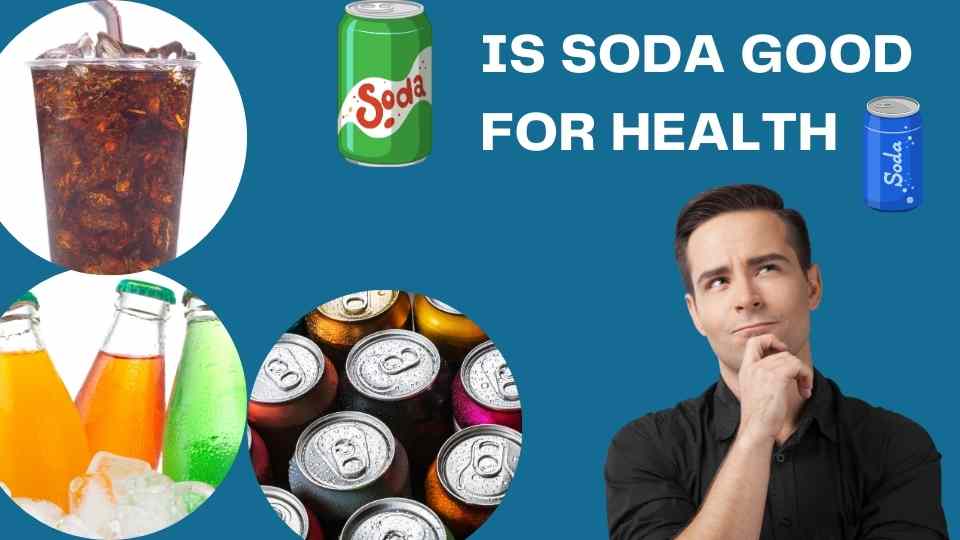Is soda beneficial for your health : might initially appear as a misleading query. However, a statement found online suggests otherwise: “Soft drinks contribute positively to a well-rounded diet. In addition to maintaining a balanced diet and engaging in regular physical activity, adequate fluid intake is crucial for maintaining good health.”
These words come from the British Soft Drinks Association, whose agenda naturally aligns with promoting the health benefits of soft drinks, or at the very least, portraying them as innocuous. Yet, the reality remains stark: beverages like Coke or Sprite offer no discernible health advantages whatsoever.
Introduction to Soda Consumption
Soda, a fizzy, sugary beverage cherished by many for decades, is renowned for its sweetness and refreshing allure, making it a favored pick for numerous individuals. Nonetheless, the ongoing discourse among health experts and the public alike revolves around whether soda holds any merits for health.
Examining the body of research regarding soda’s health impacts reveals a clear tendency towards adverse effects. The high sugar content in soda is implicated in elevating calorie intake and body weight, correlating with heightened risks of diabetes, cardiovascular ailments, and various other health concerns. Moreover, the addictive nature of sugary drinks poses challenges for individuals attempting to curb their consumption.
Contrarily, certain studies propose a potential positive role for soda within a balanced diet, particularly when consumed judiciously. Nevertheless, it’s crucial to acknowledge that soda lacks any substantive nutritional value and is predominantly laden with sugar.
Thankfully, alternatives to soda exist, offering nutritional benefits, such as 100% fruit juice and infused water. These alternatives stand as healthier choices, capable of furnishing the body with valuable nutrients.
In summation, soda generally fails to align with good health practices. Its high sugar content, coupled with addictive qualities, and the association with various health maladies, underscore the importance of moderation and exploration of healthier beverage alternatives.
Soda Gives Energy to Health?
The second most commonly cited benefit of soda is its provision of energy. In the realm of food, energy equates to calories, which sodas, excluding diet variations, contain. Thus, they serve as a source of energy.
This energy primarily derives from sugar.
Sugary beverages represent the predominant source of sugar and devoid calories for Americans. While they do supply sugar, they can also trigger rapid spikes in blood sugar levels, often followed by subsequent crashes.
Numerous studies have linked soda consumption with obesity, diabetes, and various other health complications. Additionally, children who consume soda are less inclined to drink milk, thereby missing out on essential nutrients.
Diet sodas, although devoid of calories, have been associated with increased cravings for sugar, potentially leading to similar health issues as regular sodas.
How is Soda Made?
During the manufacturing process of a carbonated beverage, the concentrated flavoring (known as the beverage base) is mixed with either a nutritive or non-nutritive sweetener and water to create a syrup. This syrup is then blended with a specific amount of carbonated water, before being filled and sealed into a container.
Advantages of Soda
- Relieves indigestion: Many individuals turn to soft drinks after meals to alleviate digestive discomfort.
- Soothes upset stomach: Carbonated soft drinks can provide relief from nausea and upset stomach.
- Boosts energy levels: Consumption of soft drinks can increase energy levels.
- Elevates mood: Drinking soft drinks can uplift one’s spirits.
Disadvantages of soda
Americans drink over 13 billion gallons of soda annually, as reported by the University of Texas Health Science Center at Tyler. These beverages commonly feature carbonation, sugar or fructose, phosphoric and citric acids, sodium, and surplus calories. Regrettably, sodas frequently replace healthier options like water. Their consumption leads to several drawbacks, such as dehydration, excessive sugar consumption, increased body weight, and calcium loss.
High Sugar
Many soft drinks contain substantial amounts of sugar. For instance, a single 12-ounce serving of cola contains around 39 grams, equivalent to about 3.3 tablespoons, of sugar. Consuming such large sugar quantities can raise blood glucose levels, potentially increasing the risk of cardiovascular disease. Moreover, numerous sodas utilize high fructose corn syrup (HFCS) as their main sugar ingredient, which may strain the pancreas and cause blood sugar fluctuations. Consistent consumption of sugary sodas can contribute to the development of type 2 diabetes.
Read More Blog Posts HERE
Subscribe to My whatsapp Channel HERE
read related posts Here

